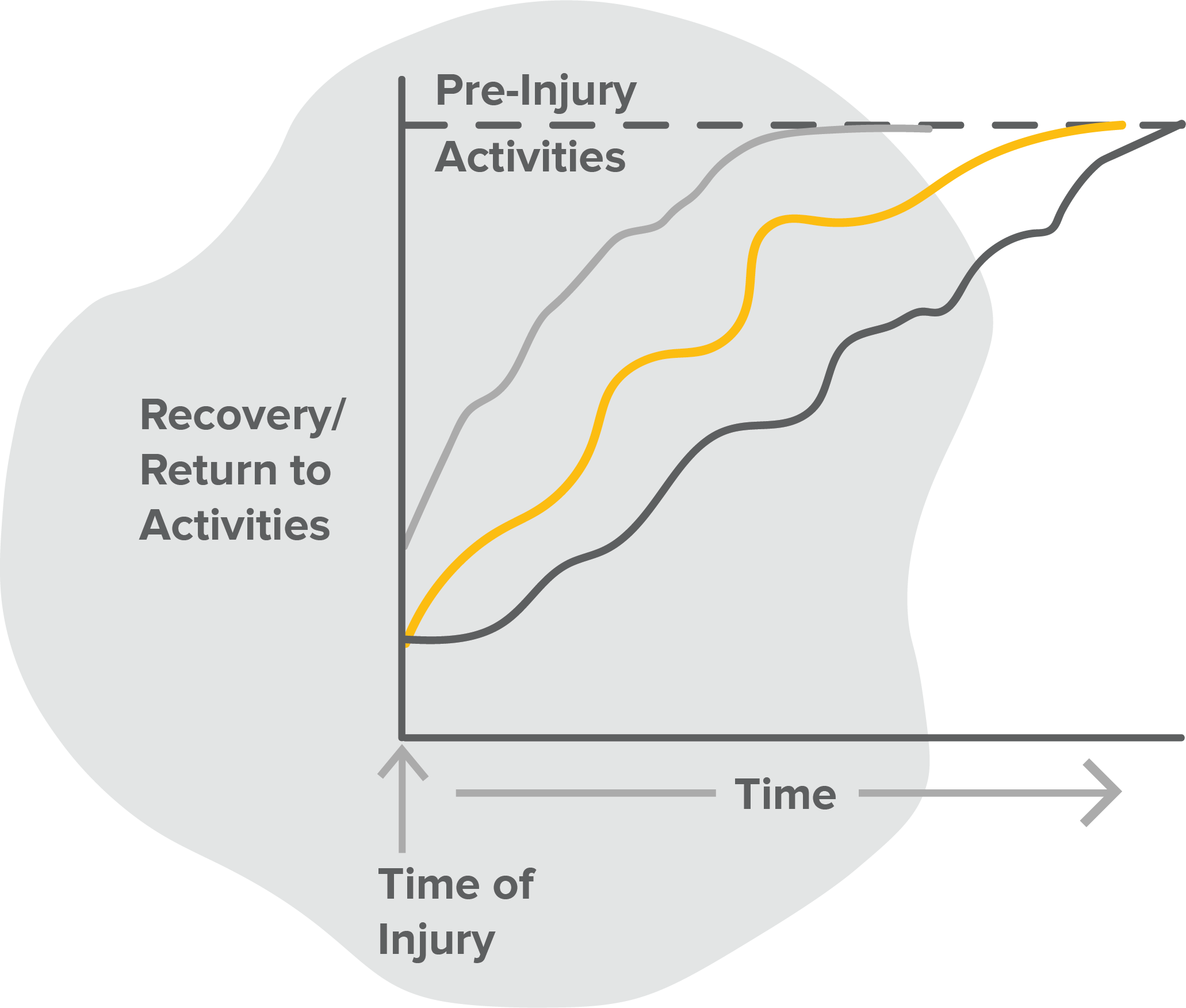Concussion: Persistent
Key Points:
- As a whole, it takes up to 30% of teens longer than a month to recover and symptoms to resolve.
- Everyone’s recovery journey is unique - and we cannot predict how long it will take you to be symptom free. There may be some things that you can do to help speed up your recovery. Ask your doctor earlier (within 2-4 weeks of the initial injury).
- Be patient, stay positive.
- Involve your parents and get expert help to guide you.
- Our expectation is that you will recover and return to the things you love.
What if Symptoms Don’t Go Away
- We cannot predict how long it takes each person to recover after a concussion
- When symptoms last longer than one month we call them "persisting" symptoms. Up to 30% of teens will have "persisting" symptoms.
- We understand that on average teens take more time than adults to recover from a concussion.
- Only about 30% of teens will have symptoms that last longer than 1 month. Some teens have a higher risk of having a longer recovery. Be sure to ask your doctor in case you would benefit from early supportive care.
Why might concussion symptoms take longer to get better?
There are many reasons why symptoms may take longer to go away. Experts are still sorting out which ones may be most relevant to concussion recovery. If any of the following factors applied to you before your concussion, it is likely you may take longer to recover:
A headache or migraine condition
A learning disability
Attention challenges
Mental health challenges
Having multiple concussion(s) and/or having a previous concussion fairly recently
What to do next? (If Symptoms Have Not Gone Away)
We know that some adolescents suffer from persisting symptoms long after their acute concussion.
If so, here are some steps to follow:
- Keep in mind – It is very common to have some ‘good days’ and some ‘bad days’. This does not mean that you are not getting better.
- Stay patient and positive.
- Remember, it is okay if your concussion symptoms get a little bit worse while doing activities such as aerobic exercise and schoolwork. Just be sure to avoid any activity that has a risk of hitting your head or falling.
- Be sure to get any co-occurring conditions (e.g., mental health challenges) assessed and treated, since many other conditions have symptoms that overlap with concussion symptoms.
- Use this self-management guide: Follow the tips and strategies provided to address your symptoms.
- Get professional help early. ‘Waiting it out’ usually does not work if you still have symptoms 2-4 weeks after a concussion.
Early treatment is more successful and gets you back to life faster.
Persisting concussion symptoms are treatable.

Who should you see if your concussion is taking longer to recover?
Go back and see your doctor to work out where you can get the best support for your recovery. Your doctor may even refer you to a specialized clinic.
A CT scan is usually not needed, as it can’t show us if you’ve had a concussion.
At the GF Strong Rehabilitation Centre, the Adolescent Complex Concussion Clinic is a multi-disciplinary team specializing in concussion recovery in adolescents. If you would like to be referred you can share this referral form [PDF] with your family doctor. Please note only referrals that meet the referral criteria will be accepted.
Managing Symptoms Can Help Recovery
Over time, you may have challenges with:
- Sleep
- Stress
- Mood changes
- Headaches
- Pain, such as a neck or a back ache
- Dizziness
These symptoms can become their own diagnosis even though your brain has healed from the concussion.
Your doctor and healthcare team can help you identify if these persisting symptoms require ongoing treatment by different specialists so that you can go to school, see your friends and do the stuff that you want to do.